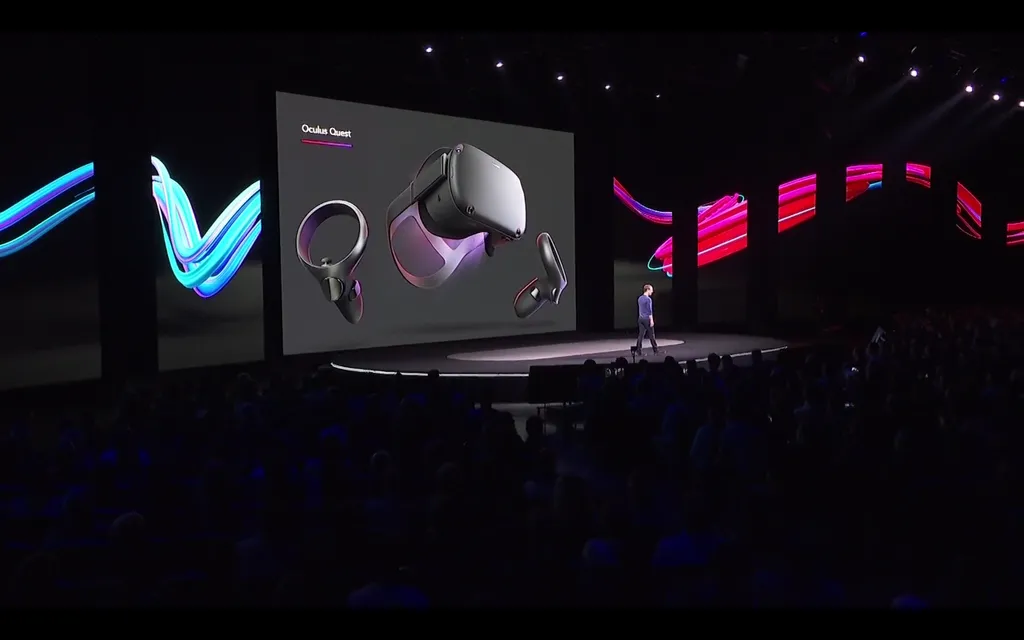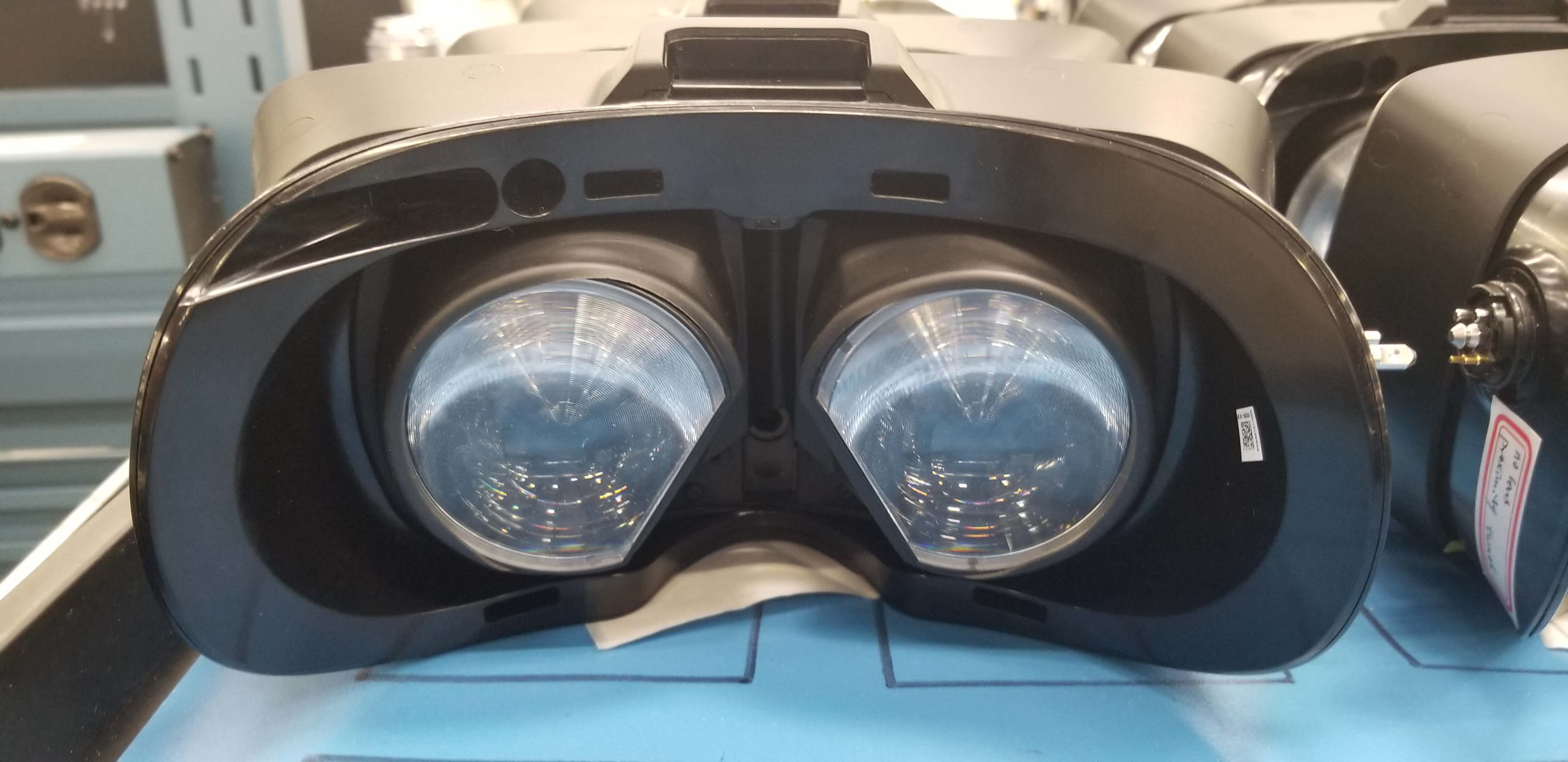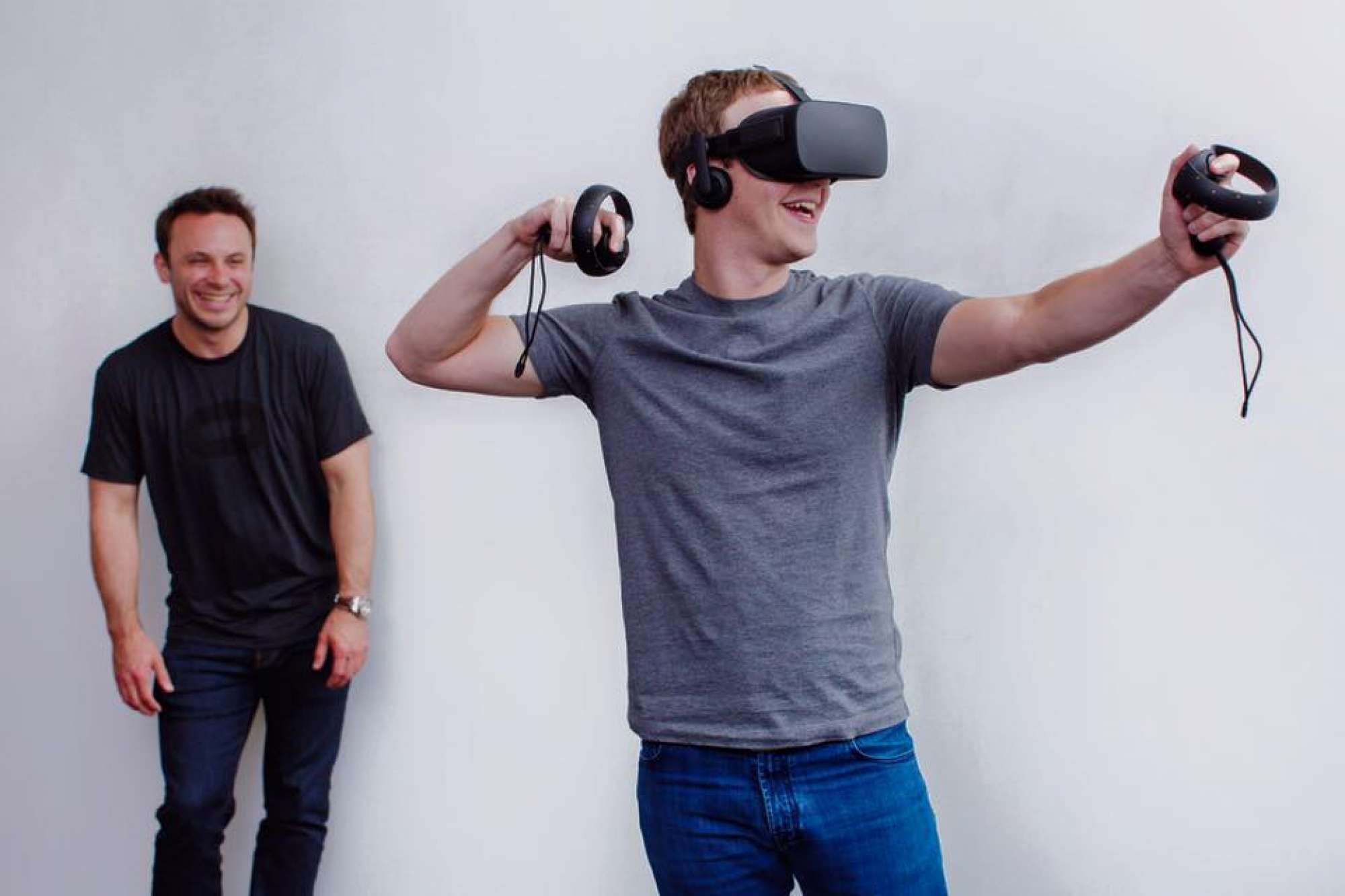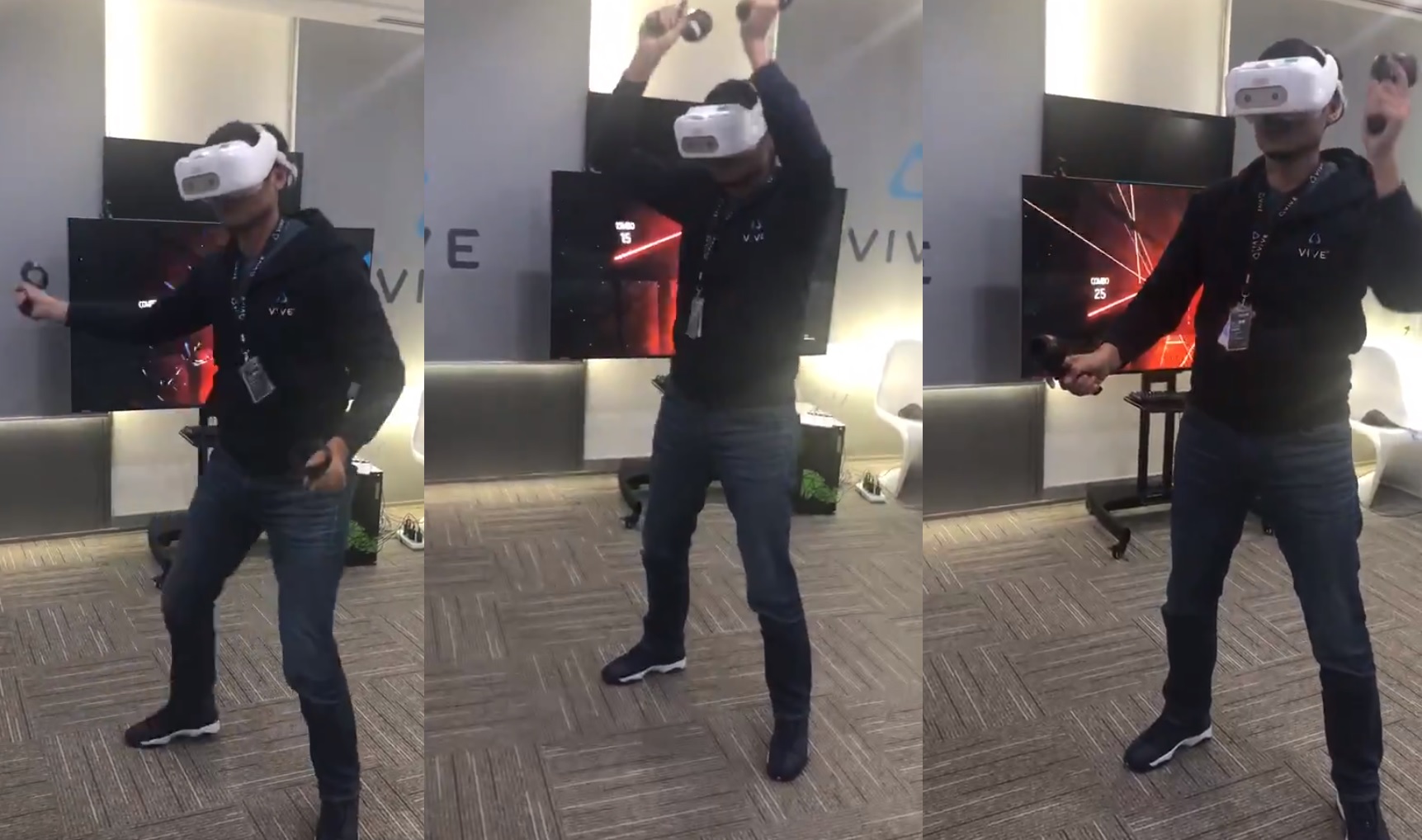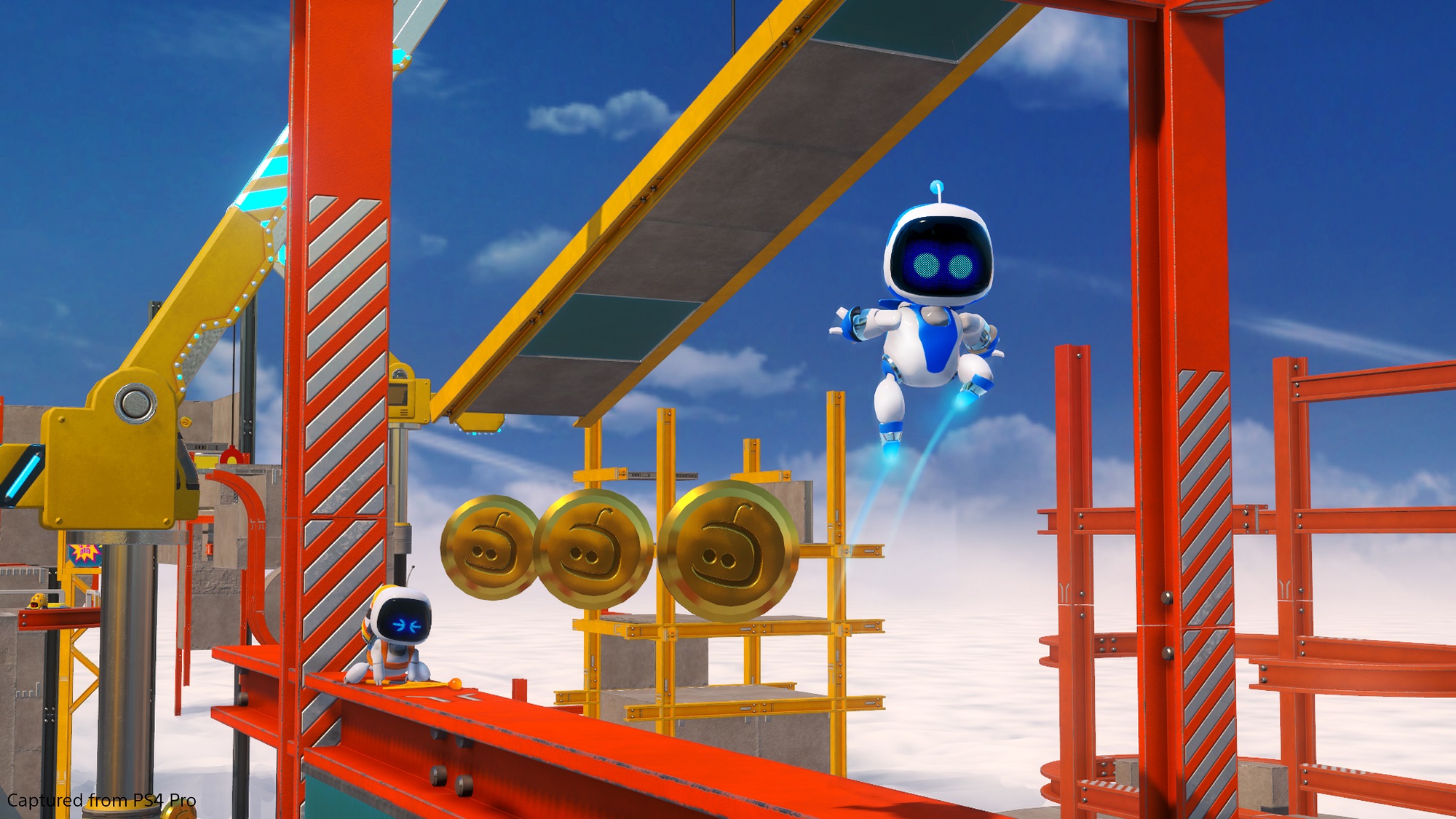Between the launch of Oculus Go, Vive Pro and an onslaught of new titles, 2018 was a busy year for VR. But it’s no secret that more exciting developments lay ahead for 2019. Current PC VR headsets are starting to get a little long in the tooth and in need of a refresh, whereas the advent of position-tracked standalone headsets could open the doors to a whole new audience.
We’ve looked ahead to the new year and come up with five big questions the VR industry faces in 2019.
Is Oculus Quest VR’s Mainstream Moment?
Oculus Quest has a lot of buzz around it. It’s Facebook’s second standalone VR headset, but it surpasses Go with full six degrees of freedom (6DOF) tracking comparable to what you’d find on PC VR, without the need to hook it up to an expensive rig. With a $399 ‘all-in’ price tag and high profile ports of games like Superhot and The Climb lined up, some hope that this might finally be the VR headset to give the industry the kickstart it needs.
But it’s far from set in stone. Quest might be a powerful bit of kit for a mobile headset but it still won’t be able to match up to Rift, Vive or even PSVR. Developers are going to run into restrictions that might impact the overall immersion the platform is capable of. We also still have a lot of questions about battery life and the extent to which the inside-out tracking holds up. Facebook has a lot to prove before we place all our hopes on Oculus Quest.
Will Valve Revolutionize PC VR?
Meanwhile on the PC side, much of the current excitement surrounds Valve’s next steps. The company that brought us the accurate, large-scale SteamVR Tracking system seems to finally be making moves toward the next generation of SteamVR. It’s latest base stations are now out and working with the Vive Pro, while the long-awaited Knuckles controllers continue to be shipped out to budding VR developers.
Most importantly, though recent leaks indicate that Valve is planning its very own VR headset, one with a massive 135 degree field of view (FOV) that comes bundled with Knuckles. Not only that, but we’ve heard that a Half-Life based VR game is also on the way from the company, which would likely turn heads as no other VR game has yet done. Valve had a quiet 2018 but if it reveals the news we’re expecting in the months ahead, 2019 will be a very different case.
What Does Oculus Rift S Mean For Facebook?
Oculus Quest may not be the only new VR headset from Facebook in 2019. Rumors also suggest the company is preparing an upgraded version of the Rift, dubbed Rift S, that may integrate Oculus Go’s improved screen and Oculus Quest’s inside-out tracking. In theory, the prospect of an upgraded Rift with a better screen and marker-free tracking is an attractive one, but the idea’s been met with some contention.
Further reports suggest that Facebook’s decision to release Rift S instead of a full follow-up with larger advancements like a 4K display and integrated eye-tracking is reportedly one of the reasons why former Oculus CEO Brendan Iribe left the company earlier this year. If true, the arrival of Rift S could possibly delay the launch of a more advanced successor for a few more years, which may mean Facebook concedes ground to Valve. We also won’t be able to see how tracking holds up to the current Rift’s outside-in approach, but we’re skeptical that active games with lots of movements like Lone Echo will meet the same standards. Facebook will need to watch where it steps with Rift S.
What Are HTC, Google and Microsoft’s Next Moves?
While the spotlight remains on Facebook and Valve in 2019, there are other VR companies that could also make waves. HTC’s Vive Pro may not have been the true Vive successor we were hoping for, but the tease of a Vive Cosmos trademark and the recent reveal of 6DOF controllers for its Vive Focus standalone platform prove that it still has skin in the game. Google is much the same story; Daydream remains VR’s most obscure platform but its own 6DOF controllers for the Mirage Solo could bring it to the forefront.
But it’s Microsoft we’re most interested in. As the company’s Windows Mixed Reality-based PC VR headsets continue to offer the cheapest route into PC VR, we’re still left guessing as to what the company has going on in the console department. Reports suggest Microsoft canned plans for VR on Xbox One, but the tease of next-generation Xbox consoles from last E3 has reignited hopes that it may come to the next device. The real question here is if 2019 is the year that we meet the next Xbox and PlayStation 5. Only then can we speculate on what that will mean for console VR.
What Is Sony’s Wave 3?
It’s no secret that Sony’s PSVR headset had a brilliant 2018. Kicking things off with Wipeout VR and following up with hits like Firewall Zero Hour and Astro Bot has given the device arguably the best library of titles in VR. Sony’s Shuhei Yoshida has said that his aim with 2018 titles was to deliver ‘full’ gaming experiences and the company certainly achieved that. So that begs the question: what’s next?
We don’t know a whole lot about what’s coming to PSVR in 2019. True, Sony London’s Blood & Truth is still on the way (though the jury’s still out on if it will live up to 2018’s best games) but other than that we only know of a handful of third-party games. To us, it seems about time that Sony’s new UK-based VR studio reveals what it’s working on, and we’re still really looking forward to what Media Molecule’s Dreams can do in VR. But we’ve also got our fingers crossed that the company has some bigger games on the way that can keep this momentum going, because PSVR remains the best reason to get into VR in the here and now.

